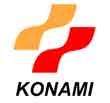Anime News
|
ICv2 2005 Manga Awards--Part 2
Phenomena, Controversy & Deal of the Year Date: 1/3/2006 |
|
We present the ICv2 2005 Manga Awards in two parts. In Part 2, we choose our Manga Phenomena, Deal, and Controversy of the Year. In Part 1 (see "ICv2 2005 Manga Awards, Part 1"), we named our Manga Publisher, Release, and Marketing Campaign of the Year. The ICv2 Awards are an on-line continuation of a tradition that began in Internal Correspondence, the print predecessor of ICv2, over a decade ago. These awards are given as a way of reflecting on the events of the year and to draw some conclusions from them. The ICv2 Awards are based entirely on the business impact of events on retailers, as determined by the editorial staff of ICv2. For last year's ICv2 Manga Awards, see "ICv2 2004 Manga Awards"). Manga Phenomenon of the Year #1: Original English Language Manga Although some fans (and publishers) object to applying the term "manga" to anything created outside of Japan, there is a growing body of Japanese-influenced comics coming from all portions of the globe including the U.S. OEL (Original English Language) manga is the shorthand designation used to describe this phenomenon, and despite the protestations of the purists there is no doubt that some OEL titles do quite well in today's crowded marketplace. Tokyopop's Warcraft, written by Richard Knaak is the #12 best-selling manga title in U.S. bookstores and Fred Gallagher's Megatokyo (published by Dark Horse), the longtime champion in the OEL category, is close behind it at #13. Tokyopop has also had success matching concepts from Americans such as rocker Courtney Love and comic book writer Chuck Austin with Japanese talent to create some interesting and popular cultural crossovers such as Princess Ai. While Tokyopop is the leader in the OEL category, it is a mistake to think that the publisher is becoming more and more reliant on OEL releases. An ICv2 survey of a crucial 3-month period in 2006 in which Tokyopop is releasing 24 new series finds that only four of them could be considered OEL, while 17 are Japanese in origin and 3 are Korean. Will other OEL series be able to match the success of Warcraft and Megatokyo? The answer may be clear by this time next year. Manga Phenomenon of the Year #2: Manga & Anime-Related Novels Prose novels based on (or which formed the basis for) anime and manga series performed exceptionally well in 2005. Dark Horse scored a major hit with Hideyuki Kikuchi's first Vampire Hunter D novel (with illustrations by Yoshitaka Amano), while Tokyopop also had a winner with its .hack//AI Buster volume. The Vampire Hunter D novel, which was released in May, sold enough copies in U.S. bookstores to rank in the top ten manga titles for 2005. Look for lots more anime-related prose novels in 2006. Viz will be releasing Full Metal Alchemist, Ghost in the Shell and Steamboy novels along with two key shoujo volumes, Socrates in Love and Kamikaze Girls; while Tokyopop is readying prose works based on Love Hina, Gundam Seed, and other popular manga/anime properties. Manga Phenomenon of the Year #3: Yaoi/Shonen Ai Manga 2005 saw a huge expansion in the American market of yaoi releases -- manga from female creators intended for female audiences dealing with male-on-male relationships. Tokyopop pioneered this category several years ago with the release of less explicit (shonen ai -- literally "boys' love") titles such as Gravitation, but mid-size publishers like Digital Manga and Central Park Media (under its Be Beautiful imprint) have expanded the number of yaoi releases in the U.S. dramatically, and in 2005 Tokyopop created its own Blu imprint specifically for shonen ai/yaoi series. Deal of the Year -- Sho-Pro & Viz The most important merger of 2005 for the American manga industry brought together Japanese licensing powerhouse Sho-Pro Entertainment and Viz, LLC to form Viz Media. The new entity will handle media and product licensing in the U.S. for the properties of both Shogakukan and Shueisha, two out of the three top manga publishers in Japan. Controversy of the Year -- Manga Censorship Adapting Japanese manga for the U.S. market is a tricky business, but the movement of the market over the past few years has been moving steadily in the direction of "authentic" and faithful translations of the original Japanese material. But there have been exceptions, and fans expressed their displeasure with CMX (an imprint of DC Comics) over the handling of the edgy Tenjho Tenge manga (see "CMX Bowdlerizes Tenjho Tenge Manga"). Last March the fan sites were ablaze as readers counted over 30 major edits in the series -- and though the series gained in notoriety due to the dispute, it failed to make much of an impact on the American market and retailers contacted by ICv2 thought that the censorship flap depressed sales of the series. Results of controversies like this are difficult to read, but it appears to have had an effect on publishers -- Del Rey recently announced that it will not alter its releases and will shrinkwrap and provide an "18+" rating to any title it containing what it considers "adult content," rather than attempt to make any major edits. |
| Source: ICv2 |






















